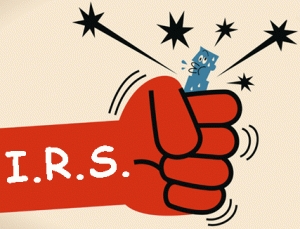July 22, 2013
By: Brian Mahany, Contributor and Tax Attorney
Whether deliberate or an “honest” mistake on the part of a bloated system, the IRS has reneged on some of the amnesty approval letters issued to offshore account holders.

Unfortunately, the rumors are true.
Earlier this winter, a few amnesty participants, who had already been accepted into the program, had their acceptance revoked. That caused a shock-wave throughout the small community of offshore reporting professionals.
The IRS has done a terrible job of educating people about their offshore reporting requirements. Compliance has been abysmal. To increase compliance, the IRS and Justice Department began an extremely aggressive criminal prosecution program coupled with an amnesty program. It’s the old “carrot and stick.” Unfortunately, some taxpayers who thought they were doing the right thing received the stick instead of the promised carrot.
In January and February of this year, a handful of taxpayers that had already been accepted into the amnesty program suddenly received notices that their acceptance was being revoked. It appears that all or most had unreported accounts at Bank Leumi. Some may have had accounts at Mizrahi Tefahot Bank. A careful examination of the facts suggests the IRS was acting within the letter of the law. That’s no comfort for those who voluntarily chose to come clean and now find themselves with no amnesty.
The IRS operates its amnesty program on a first contact basis. If you contact them first and enter the amnesty program, you avoid audit and possible criminal prosecution. (The risk of prosecution is extremely low for most taxpayers.) If they contact you first, however, all bets are off. That makes sense. According to the fine print of the program, however, the IRS can deny you participation if they have already received your name from a cooperating bank.
It’s hard to know exactly what went wrong in this case since the IRS is prohibited from disclosing information about specific taxpayers. We believe, however, that the problem is within the IRS’ computer systems. The organization is so big, that the people running the amnesty program don’t know what is happening in other places within the agency. Your name could be sitting on an auditor’s desk for months, yet the people issuing the amnesty acceptance letters have no idea that your account has already been identified. Mistakes happen, but taxpayers shouldn’t be punished for the IRS’ own inefficiencies and errors.
Both the General Accounting Office and the IRS’ own taxpayer advocate have publicly criticized the agency’s failure to educate the public about offshore account reporting. Congress may have created these bad laws but the IRS has the responsibility to educate taxpayers and help them comply. Kicking out folks who had already been accepted into the amnesty program will only further hurt the agency’s credibility.
So what happens to those people who suddenly find their acceptance letters revoked? They may still be able to avoid prosecution and receive a break on penalties if they can demonstrate that their failure to file an FBAR was based on mere negligence or ignorance.
Getting tossed from the program certainly means more stress, an audit, higher legal fees and the possibility of much higher penalties. For some, it also means the possibility of prison. If the IRS already had their names, attempting to hide wouldn’t have worked anyway, however.
The take-away from all this is that time is running out. Soon foreign banks will be required to identify and report U.S. account holders and many are doing so already pursuant to John Doe subpoenas and existing tax exchange treaties. The message from the IRS is clear: Get to us before we get to you (or get your name).
The question isn’t whether you can trust the IRS. Trying to hide or ignore the law will only make matters worse.
Because the IRS does not publicize the names of banks that are under investigation or cooperating, its impossible to know which banks have turned over names and when. The sooner one comes forward, however, the better the chances of avoiding the most severe penalties.
About the author. Brian Mahany is a frequent contributor to Global Wealth Strategies. He is a practicing tax attorney at Mahany & Ertl with offices throughout the United States. Brian welcomes questions and can be reached by email at [email protected]

